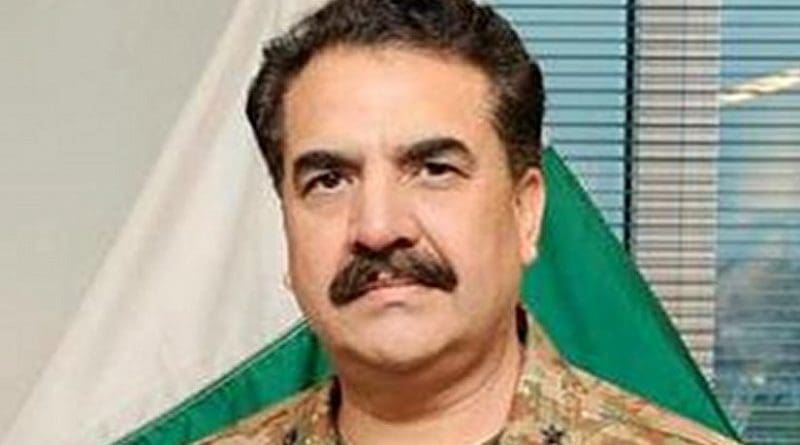The Future Of Islamic Military Alliance? – OpEd
Saudi Arabia is leading 41 countries in the Islamic Military Alliance to combat terrorism with the omission of some key countries, such as Iran, Iraq, Indonesia, Afghanistan, Syria, and Tajikistan. The alliance was formed to eradicate terrorism from the soil of Muslim countries, but due to the absence of key Muslim countries, this alliance has been controversial and is an antecedent of expected results.
According to Saudi officials, the basic aim of this alliance is for international coordination with major powers and international organizations for operations in Syria and Iraq, to counter the Islamic State, or Daesh, the Arabic acronym for ISIS or ISIL, and to counter other terror organizations and to protect all member states. On one side Saudi Arabia heads a UN Human Rights Council panel and on the other side it leads an alliance against terrorism. This joke doesn’t need a punchline.
The alliance’s composition is rather telling that the greater part of its original 34 “member states” are from the Organization of Islamic Cooperation (OIC); itself a body whose creation in 1969 was pushed for by Saudi Arabia. 23 OIC members were missing from the rundown. A closer look at the alliance, however, reveals that other Sunni states, for example, Algeria, have declined to take an interest regardless of their mutual interest in the battle against terrorism. It is, therefore, less a sectarian, and more of a geopolitical alliance.
Iran, the religious and local adversary of Saudi Arabia, is not part of the Saudi-driven military alliance, alongside Iraq and Syria. The exclusion of Shia-lion’s share nations like Iran and Iraq from the military co-operation gives the impression of the military organization being a “Sunni collusion”, or that it is a strategy to contain Iran.
ISIS is a big threat to Saudi Arabia. Recently, when this alliance was announced, ISIS considered it as a maverick. However, in the past two years ISIS has executed over twelve fear assaults on Saudi soil, bringing about more than 50 losses. Both ISIL and Iran challenge Saudi Arabia on the ideological front in comparative ways. Therefore, Saudi Arabia is trying to counter pro-Iranian organizations and their growing influence in Yemen, Iraq, and Syria.
Brig. Gen. Ahmed Al-Assiri, the counselor at the Saudi resistance clergyman’s office and representative of the Arab coalition for Yemen’s affairs, said that with the goal for Iran to wind up some portion of the military partnership, it must quit supporting terrorism aboard and threatening Arab and Muslim countries.
This is not first the time that Saudi Arabia has called for an Islamic Military Alliance, but it is the third endeavor since the Arab Spring to standardize military collaboration and coordination. In 2013, it pushed for a NATO-like coordinated charge structure for GCC military strengths, including 100,000 troops; in 2014 this was followed by a common police structure (called GCC-Pol) and a common naval force. In 2015, Saudi Arabia initiated, along with Egypt, the creation of a common anti-terror force under the umbrella of the League of Arab States. Disregarding these excited affirmations and a few barrier boss gatherings, the venture has been put on hold since summer 2015 until further notice.
Riyadh sees itself in vital critical straits, following the nuclear deal with Iran; it feels fairly relinquished by its traditional military partner, the US. In 2015, Washington unequivocally precluded a common military settlement with the Gulf States in light of the fact that structures like NATO would take decades to assemble. Rather, it offered military help particularly in the areas of missile defense and cyber warfare.
Meanwhile, more than ten other Muslim nations have communicated their support for this collusion and will take the important measures in such manner. There are four nations that have demonstrated their advantage, but have not joined yet. These countries are Afghanistan, Tajikistan, Indonesia and Azerbaijan. Similarly, Svetlana Alexandrova, Tunisian Ambassador to Russia, has said that Tunisia won’t give military support, but will contribute in terms of intelligence sharing and will counter-terrorism in its own way.
The Islamic Military Alliance is not an Arab equivalent of NATO, which is an integrated defense force aimed at opponents outside the member states’ territory. Neither is it like the EU, which supports nearer participation on local security issues, nor is it even like the UN by being outfitted towards conflict resolution and post-conflict stabilization? In fact, it is a very classical military alliance that will strengthen sectarianism.
Interestingly, Pakistan is also part of the nations alliance by playing a leading military role. The Government claimed that our forces will work inside the Saudi border, but the fact is that the government had agreed to send their troops during the intervention in Yemen on Saudi’s demand, but opposition parties and public rejected their demand. Islamabad ia trying to portray a message that Pakistan is not isolated by participating in IMA, but in fact it will make Pakistan’s relations worse with Iran and its allies.
The Islamic Military Alliance looks fabulous on paper, but controversial in terms and practice. Neither is it military or is it Muslim in nature. Simultaneously it will generate rivalry, enmity, hatred and sectarianism among Muslim world, therefore its future looks totally dark.
The writer is a Research Affiliate at Strategic Vision Institute Islamabad and he can be reached at [email protected]/ [email protected].

